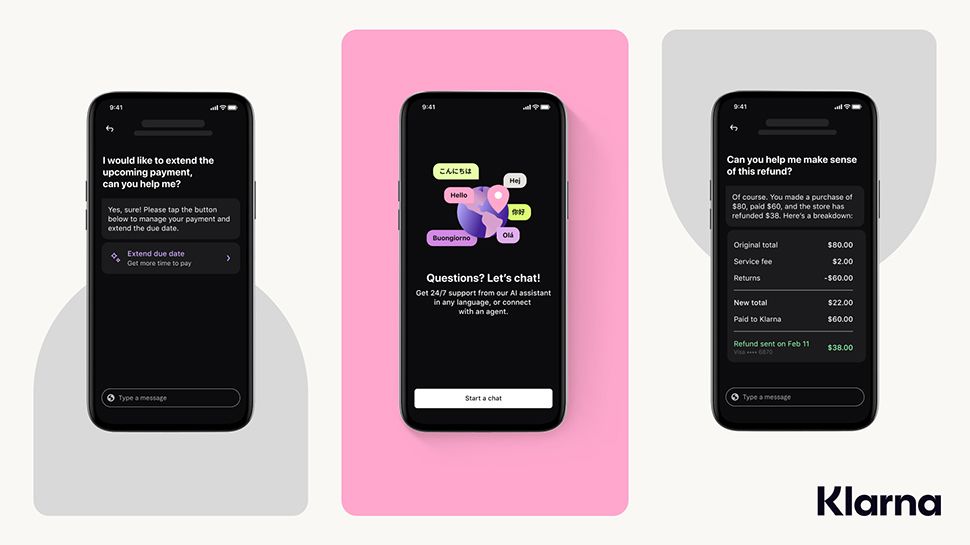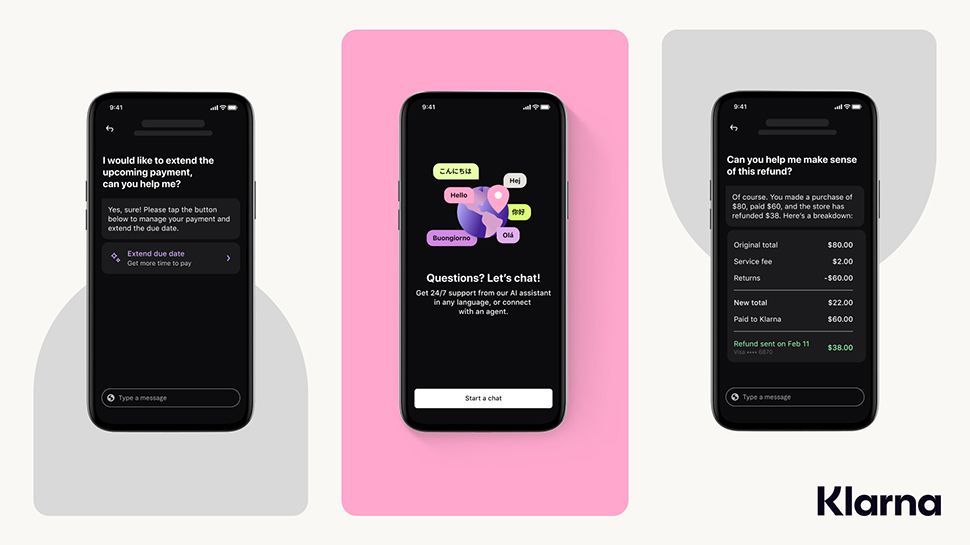
While most people would prefer to chat with real employees when looking to solve a problem to do with a company’s products or services, chatbots are the first and often only port of call these days. They are getting ever smarter too thanks to modern AI – but this does come at a cost, however, as it means fewer human jobs in customer service.
For example, take Swedish fintech Klarna. A post on the company’s website announced proudly that its OpenAI-powered Klarna AI assistant had handled two-thirds of customer service chats in its first month. You’ll need some context for that – Klarna says that is 2.3 million conversations.
It also says that the AI is now doing the equivalent work of 700 full-time agents and is “on par with human agents in regard to customer satisfaction score”. Klarna also adds that “it is more accurate in errand resolution, leading to a 25% drop in repeat inquiries”, although the decline could be partially attributed to people not wanting to engage with an AI chatbot.
No way connected to workforce reductions
Speed is a positive factor too. Klarna says customers “resolve their errands in less than 2 mins compared to 11 mins previously” and then there’s the bottom line. The switch to AI has reportedly driven a $40 million profit improvement to Klarna in 2024.
“This AI breakthrough in customer interaction means superior experiences for our customers at better prices, more interesting challenges for our employees, and better returns for our investors,” said Sebastian Siemiatkowski, co-founder and CEO of Klarna. “We are incredibly excited about this launch, but it also underscores the profound impact on society that AI will have. We want to reemphasize and encourage society and politicians to consider this carefully and believe a considerate, informed and steady stewardship will be critical to navigate through this transformation of our societies.”
That the “AI is now doing the equivalent work of 700 full-time agents” will raise some eyebrows, especially given that the company laid off approximately the same number of employees in 2022 due to inflation and economic uncertainty.
Despite the similarities in numbers, Klarna says there is no relation between the two. When Fast Company asked the company about it, it was told: “This is in no way connected to the workforce reductions in May 2022, and making that conclusion would be incorrect. We chose to share the figure of 700 to indicate the more long-term consequences of AI technology, where we believe it is important to be transparent in order to create an understanding in society. We think [it’s] important to proactively address these issues and encourage a thoughtful discussion around how society can meet and navigate this transformation.”
More from TechRadar Pro
Services Marketplace – Listings, Bookings & Reviews
